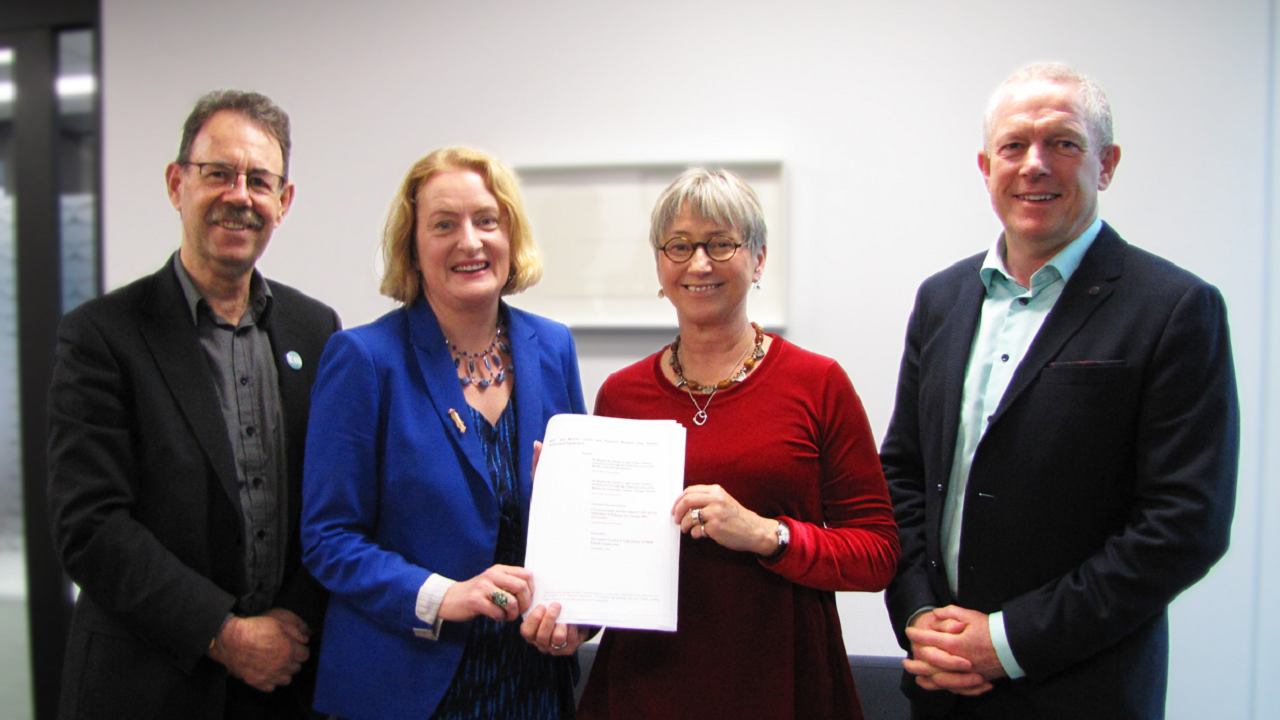It affects contracts for around 300 services accessed by about 24,500 people and children with disabilities, at a projected cost of $55.8 million over five years.
Vocational and disability care and support workers have faced very similar pay equity issues to care and support workers in the health and rehabilitation sector. This latest settlement addresses historic pay equity disparities in line with the April 2017 TerraNova agreement.
Pictured are the four leaders who signed the historical agreement on 17 July. From left: John Ryall (E tū Union), Gráinne Moss (Chief Executive of the Ministry for Vulnerable Children, Oranga Tamariki), Kerry Davies (Public Service Association) and Brendan Boyle (Chief Executive of the Ministry of Social Development).
“Our aim in settling this pay equity claim is a better paid, more stable and highly trained workforce, leading to higher quality and more consistent care for disabled clients,” Brendan Boyle says.
Gráinne Moss says, “We value disability care and support workers’ major contributions to realising the disability sector vision of enabling good lives. This really is a red letter day for these care and support workers.”
The disability care and support workers covered by this agreement provide personal care and support including help to wash, dress and eat, help with the laundry, housework and shopping, or help getting to appointments.
Wage rates for disability care and support workers will increase in each of the next five years, based on qualifications for new staff and transition arrangements for existing staff who don’t have qualifications.
The Ministries will fund employers for the pay increases through their contracts and will also help fund and require employers to provide training.
Read the Care and Support Workers Pay Equity Settlement Agreement [PDF, 3.6 MB]


